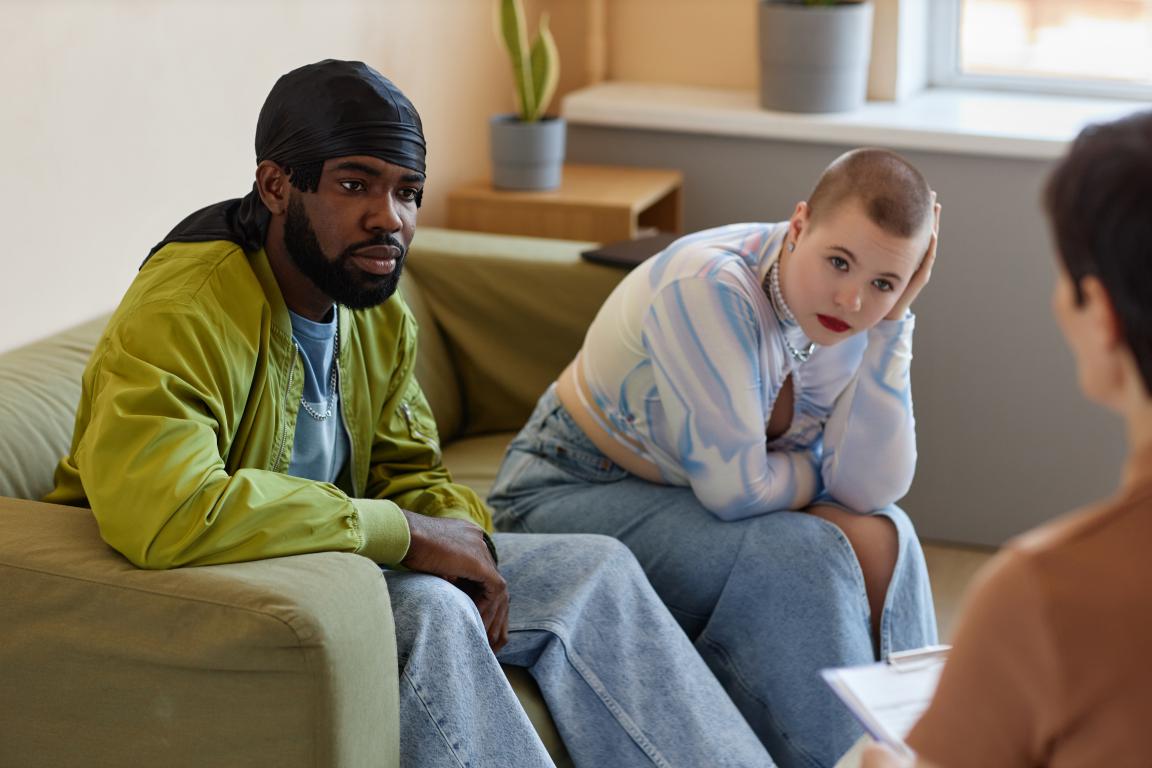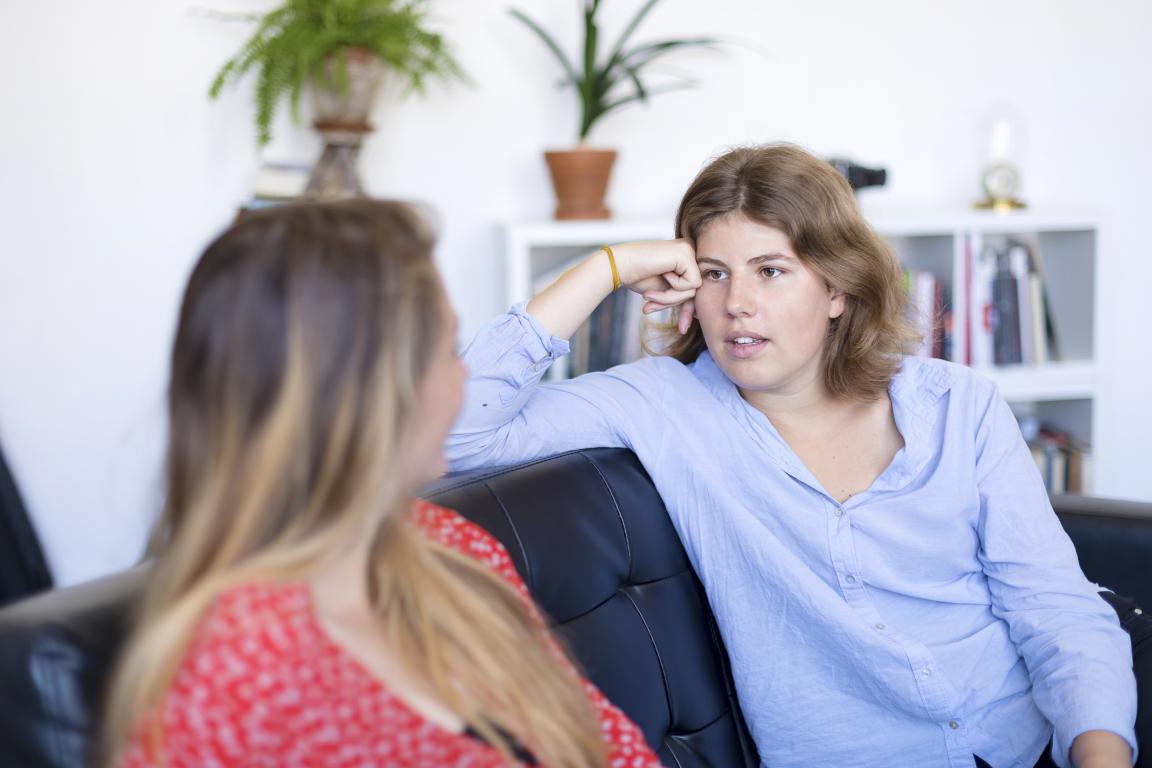Bio-degradable cards
Every card imaginable!
|
Bio-degradable cards Every card imaginable! Understanding Rejection Sensitive Dysphoria (RSD): The Unofficial Symptom That Dominates ADHD LifeEver had a single comment, a strange look, or a text message that wasn't answered quickly enough completely ruin your day? One minute you’re fine, and the next you're spiraling, hit by this massive wave of hurt and shame that feels completely overwhelming. If that sounds painfully familiar, you might be dealing with something called Rejection Sensitive Dysphoria, or RSD. Let's get this straight from the start: you're not being "too sensitive" or "dramatic." This is a real, intense, and frankly awful experience that's incredibly common for people with ADHD. This guide is here to help you feel seen. We're going to break down what RSD actually is, why it hurts so much, and most importantly, what you can do to manage it so it doesn't run your life. Table of Contents
What Exactly is Rejection Sensitive Dysphoria (RSD)? 
What Exactly is Rejection Sensitive Dysphoria (RSD)?One of the most confusing things about RSD is that it isn't an official medical diagnosis you'll find in the big textbooks. That's a huge reason why so many of us feel misunderstood or dismissed when we try to talk about it. The term was created by an ADHD expert, Dr. William Dodson, to finally put a name to this extreme emotional pain that gets triggered when we think we've been rejected, criticized, or laughed at. The key word there is think. The rejection doesn't even have to be real. It's our brain's interpretation of an event that sets off the bomb. The word 'dysphoria' literally means 'difficult to bear', and honestly, that's the perfect description. It's an emotional state that is almost physically painful to endure. It’s so important to realize that this isn't just about having your feelings hurt. It’s an instant, 100-out-of-10 emotional reaction. A good way to think about it is like having an emotional sunburn. For someone else, a friendly pat on the back is just a nice gesture. But for you, with that sunburn, the same friendly pat is agony. A throwaway comment that someone else would barely notice can feel like a punch to the gut for someone with RSD, leaving you feeling winded and crushed. This massive reaction tends to show up in one of two ways. The first is when you turn it all inwards. The pain hits, and you immediately start blaming yourself. You might go completely quiet, withdrawing into your own head to replay the moment over and over, telling yourself that you're useless, annoying, or fundamentally unlovable. The other way it can show up is by lashing out. This is a self-defense mechanism. The pain is so unbearable that you might get instantly angry or defensive, trying to push the other person away before they can hurt you any more. It's a confusing reaction for everyone involved, but it comes from a place of deep, sudden pain. It's this all-or-nothing, lightning-fast emotional flood that makes RSD so different from something like social anxiety, which is usually more of a slow, creeping worry about the future. 
The Intense Emotional Experience of an RSD EpisodeSo, what does an RSD episode actually feel like from the inside? Honestly, it’s a bit like an emotional ambush. It can all start with something that seems tiny, something other people might not even notice. Maybe your boss says those dreaded words, "Can we have a quick word later?" or a friend you messaged a few hours ago has left you on 'read'. For most people, that's no big deal. But for us? For a brain wired for RSD, it’s a massive red flag. Your mind doesn't just wander to a bad outcome; it leaps straight to the absolute worst-case scenario: "I'm about to be fired," or "That's it, they hate me now, our friendship is over." There’s no in-between. What happens next is a total emotional freefall. It’s not a gentle slide into a bad mood; it’s like the floor just dropped out from under you. A powerful feeling of shame just washes over you, so intense that it feels physical. You might feel a lump forming in your throat, your stomach might clench, or you might get a genuine ache in your chest. In that moment, the feeling that you are fundamentally flawed and rejected by everyone becomes your entire reality. It's incredibly painful and lonely. You feel like you've done something unforgivably wrong, even when a small, logical part of your brain knows you haven't. The world can feel like it's turned to gray, and any confidence you had just moments before has completely vanished. And the aftermath, the emotional hangover, can be just as draining. You’re often left feeling completely exhausted, like you’ve just run a mental marathon. Your brain can get stuck on a loop, replaying what happened and the horrible feelings that came with it, which makes it impossible to concentrate on anything else. Over time, living like this can turn you into a serious people-pleaser, doing anything you can to avoid ever getting criticized again. You might start dodging social events, turning down new opportunities at work, or just stop sharing your real opinions. The fear of that painful rejection becomes so big that it can make your world get smaller and smaller. 
Why is RSD So Closely Linked to ADHD?So why on earth does this seem to go hand-in-hand with ADHD? It's not just bad luck. It's a combination of how our brains are built and what we've been through. The biggest piece of the puzzle is that ADHD isn't just about focus; it's a disorder of regulation. The part of our brain that's in charge of things like planning and controlling impulses is also in charge of our emotions. In the ADHD brain, this part works differently. Think of it like a car with faulty brakes. When an emotion shows up, whether it's happiness or hurt, we struggle to slow it down or moderate it. With RSD, the feeling of rejection slams on the accelerator, and our emotional brakes just can't cope. The result is that immediate, overwhelming crash. And then you add a lifetime of experience on top of that. From when we were little kids, many of us with ADHD got more than our fair share of negative feedback. "Why can't you just focus?", "You're so disorganized," "You forgot again?". Hearing these things over and over can train your brain to expect criticism and failure. You become hyper-aware of any sign that someone might be displeased with you. Your brain is basically on high alert for rejection, because in the past, it's been a pretty common event. You start to see it everywhere, even when it isn't really there. Plus, the other challenges that come with ADHD feed into it. Our working memory can make it hard to hold onto compliments or remember our past successes when we're faced with a perceived failure right now. We can also struggle to see a situation from another person's perspective, so we jump to the conclusion that their mood or action must be about us. It's this perfect storm of a highly sensitive emotional system combined with life experiences that have taught us to fear rejection. It's not a flaw in your character; it's a result of your brain and your history. 
Strategies for Managing RSD in Everyday LifeOkay, so it can feel pretty overwhelming. But the good news is, you're not powerless here. While RSD is a deep-rooted reaction, there are real, practical things you can do to turn down the volume and take back control. The journey starts with just noticing it. Honestly, just being able to identify a feeling can be a game-changer. Instead of getting swept away by the thought "I'm a total failure," you can learn to think, "Ah, okay. This is that RSD thing happening. This feeling is huge, but it might not be telling me the truth." Just naming it creates a tiny bit of space between you and the emotion, and that space is where your power lies. Once you can spot it, the next goal is to create a pause. This is tough because the RSD reaction is lightning-fast, but it gets easier with practice. It can be as simple as training yourself to take three slow, deep breaths the second you feel that familiar stab of pain. Or you can literally walk away for a minute – go to the bathroom, get a glass of water, just change your physical space. That tiny interruption can be just enough to stop the emotional wave from completely knocking you over, giving the more rational part of your brain a chance to wake up. In that little pause you've created, you can start to gently question the story your brain is screaming at you. RSD loves to jump to the worst possible conclusion, so you need to be a calm fact-checker. Ask yourself: "What's the actual evidence that I'm being rejected right now? Is there any other possible explanation for what just happened? Maybe they're just busy, stressed, or having a bad day?" A great question to ask is: "What would I say to my best friend if they were in this spot?" You'd be much kinder to them, right? This isn't about ignoring the hurt, it's about checking if the story causing the hurt is 100% true. This is the long game, but the most powerful thing you can do is build a sense of self-worth that doesn't rely on what other people think. RSD has much less power when you genuinely like yourself. Focus on what you're good at, on your passions, on the things that make you feel capable and proud. And finally, if you feel able to, talk to the people you trust. Trying to explain what RSD is and how it feels can make a world of difference. It can help them understand why you react the way you do, and you can feel safer asking for reassurance when you need it. A simple, "I'm feeling a bit insecure, can you tell me what you meant by that?" can stop an RSD spiral in its tracks. Living with RSD is a continuous journey, not a problem with a simple fix. The most important takeaway is that your feelings are real, valid, and rooted in the way your brain is wired. You are not broken or "too sensitive." By learning to recognize its triggers, pausing before you react, and gently questioning the stories it tells you, you can significantly lessen its power over your life. Be patient and compassionate with yourself through this process; this is a skill, and like any skill, it takes time and practice to develop. You have already taken the most important step by seeking to understand it. 
Further Reading & Helpful ResourcesWe really hope this guide has helped you connect the dots. It can be a massive relief just to put a name to what you're feeling. If you'd like to read up on it some more, the links below are from top-tier US organizations we trust and are a great next step. ADDitude Magazine - What Is Rejection Sensitive Dysphoria?: An in-depth expert guide from the leading ADHD publication, explaining the symptoms, causes, and treatments of RSD.https://www.additudemag.com/rejection-sensitive-dysphoria-and-adhd/ CDC - Facts About ADHD: The official page from the U.S. Centers for Disease Control and Prevention. This is a foundational public health resource on ADHD symptoms, causes, and diagnosis. NIMH - Attention-Deficit/Hyperactivity Disorder (ADHD): The official page from the U.S. National Institute of Mental Health, providing an authoritative overview of ADHD symptoms, diagnosis, and treatment. 
How a Simple Card Can HelpWorking on all this internal stuff is a massive part of the battle. But let's be honest, a lot of the struggle happens when you have to deal with the outside world. Trying to explain the whirlwind in your head during a moment of overwhelm, or in a stressful situation with your boss or even law enforcement, can feel completely impossible. The words just don't come out right, and the fear of being misunderstood just makes everything worse. This is where having a simple tool in your wallet can make a real difference. An ADHD Medical Card from The Card Project US does the talking for you when you can't. It quietly and clearly explains that you have a condition that can affect your communication and emotional responses. It can help de-escalate a tense situation and create a moment of understanding and patience. It’s a simple way to advocate for yourself without having to find all the right words, giving you a small but powerful buffer in a world that doesn't always get it. Learn more about how our ADHD Medical Cards can offer support and peace of mind.
© 2024 The Card Project US LLC
reg: 99-3537629
|